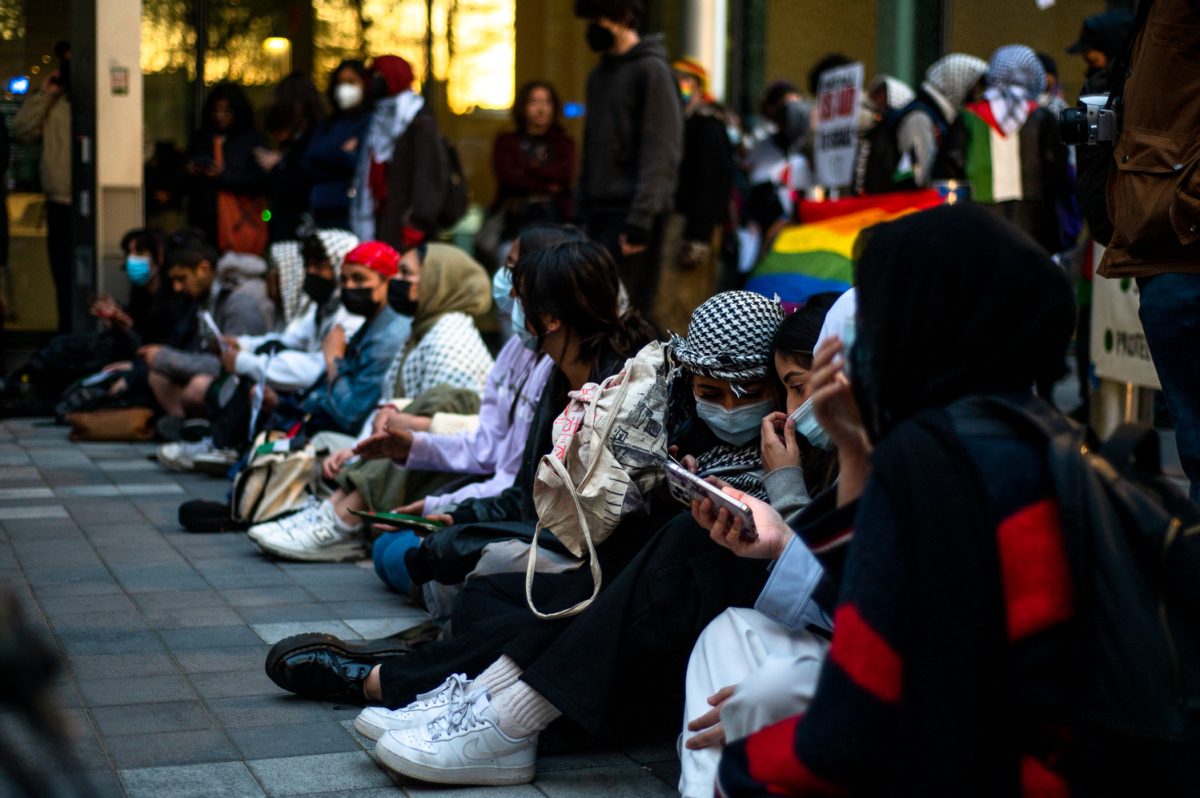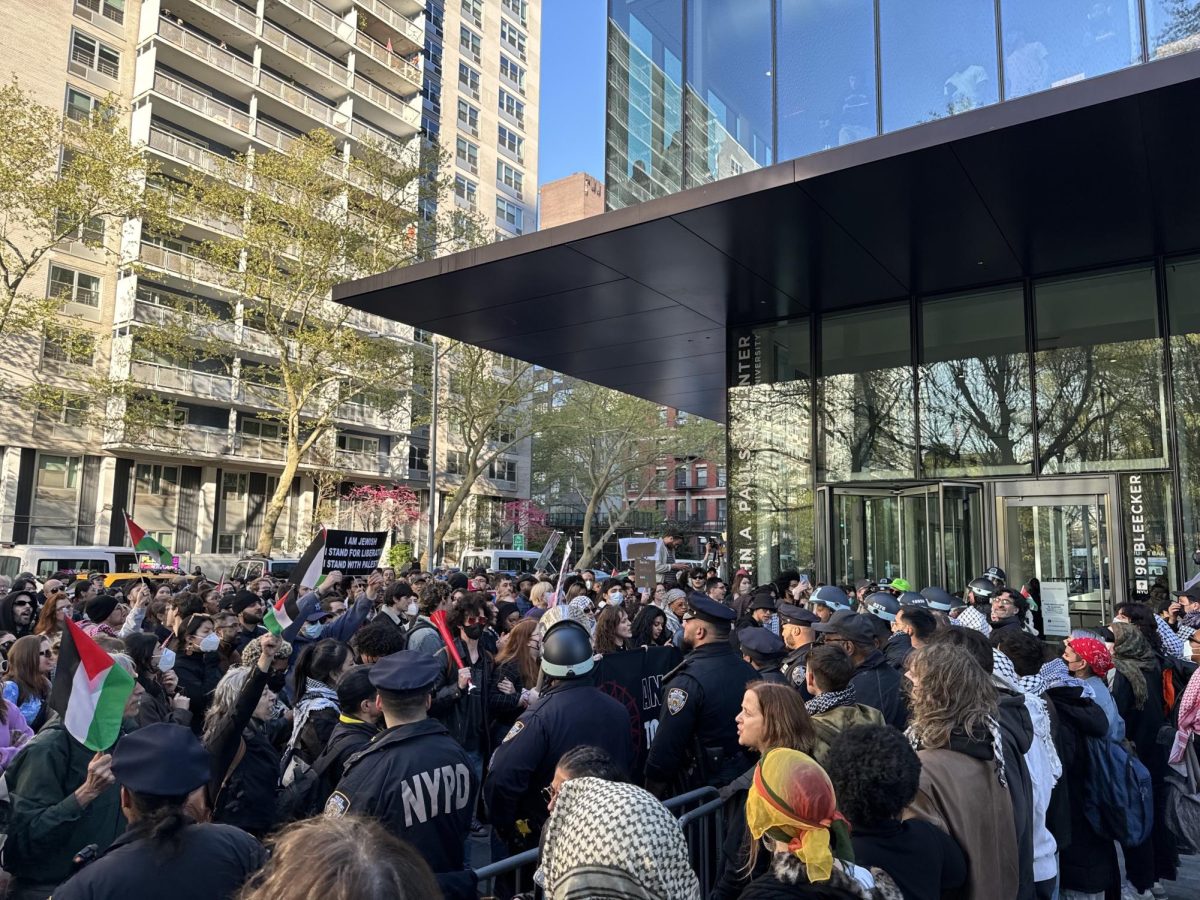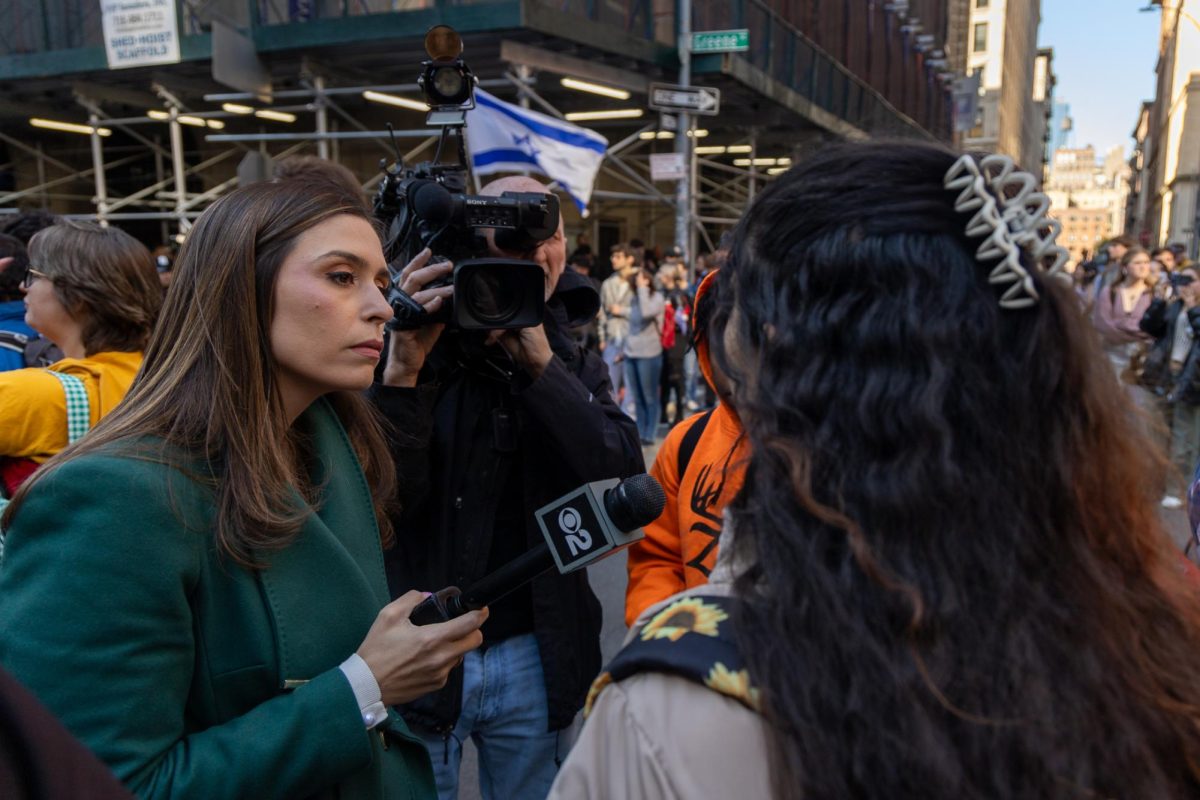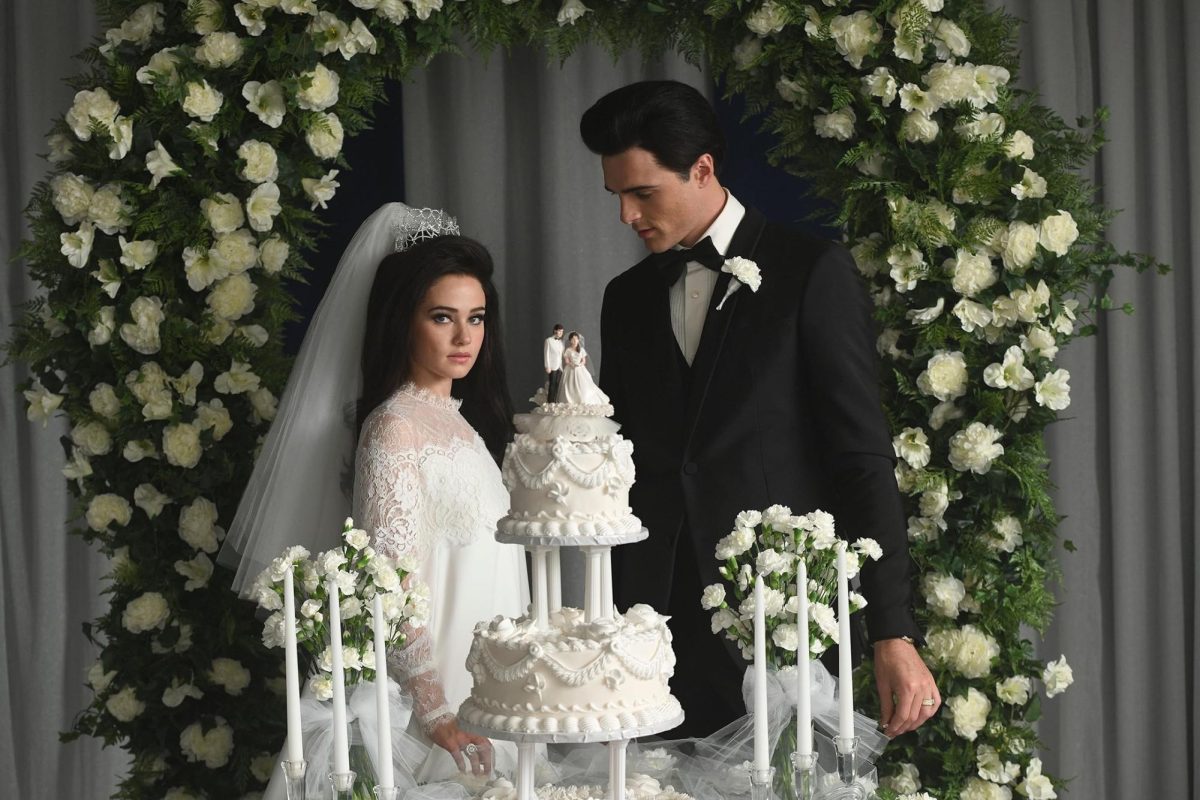Based on Priscilla Presley’s autobiography, “Elvis and Me,” acclaimed director Sofia Coppola’s latest film “Priscilla” arrived in theaters Nov. 3. In a cultural climate inundated with the ever-present legacy of the king of rock ’n’ roll, the film brings a delicate yet haunting perspective on the infamous marriage led by a transformative Cailee Spaeny, who gives agency to a woman who was always seen but never truly heard.
Coppola’s strikingly polished visual style yet again exemplifies the central motif in her films: young women trapped in gilded cages, increasingly disillusioned with their environment. “Priscilla” indulges in its own aromatic realm, where clips of the titular character flash across the opening credits as she dolls herself up. Red lacquered nail polish, scented hair spray, fake eyelashes and slick winged eyeliner are applied, illustrating parts of a thinly veiled woman, until we are thrust back to Priscilla’s 14-year-old innocence back in West Germany.
The courtship begins when she spots Elvis, played by Jacob Elordi. It’s easy to become infatuated with his charisma. From their first moments, it’s clear to see that, while this newness unnerves her, Priscilla gradually takes pleasure in the rare privilege she holds — a position desired by every woman. Coppola weaves a path of misconstrued maturity. Priscilla, who once framed every invite to Elvis’ with “I’d have to ask my parents,” alienates herself from her family, bent upon the idea that Elvis “needs her.” Even as the rock icon ventures further into the spotlight, Priscilla furtively expresses her loyalty to him, naive to the realities of entering the public eye.
Coppola’s female protagonists, whether it is Priscilla or Marie Antoinette, are all reminiscent of each other — they are trapped women overshadowed by the tides of history. When Priscilla arrives at Graceland, it seems her fairytale has come alive until we are met with shot after shot of her stuck inside the mansion in solitude, as Elvis is whisked away to countless film sets. Cinematographer Philippe Le Sourd emphasizes this seclusion as the camera slowly zooms out from a shot of Priscilla within Graceland’s windows and frames her as seemingly being swallowed up by the mansion’s overbearing rooms. It serves as a holding cell rather than a home.
When introducing the film, Spaeny described the Presleys as “American royalty.” When looking back at what we define as “Americana,” this assertion rings truer than ever. While Elvis helped transform American pop culture, what makes “Priscilla” effective and new is its ability to demystify the fantasy of Elvis, openly illustrating the consequences of his groomed influence on his wife.
As the film progresses, Priscilla begins to lose her natural image, and we are reminded of her routine from the opening credits as Elvis presses on his desire for “black hair, and more eye makeup.” He strips away her identity for the image of his own ideal woman, leaving her as a doll-like canvas. Editor Sarah Flack, longtime contributor to Coppola’s films illustrates this stylistic change through quick montages of Priscilla’s wardrobe curated by Elvis and careful hair primping as she transforms into a completely different woman. There was never a place to refuse, but to simply comply in hopes for more love. This conditioning builds to one of the most visceral sequences: while the pregnant Priscilla goes into labor, with Elvis clamoring to go to the hospital, she holds back to meticulously apply her false eyelashes.
Although Elvis satisfies himself with the comfort of Priscilla and rumored infidelity, she is never able to confront nor fulfill her own desires. Elvis’ proposal consists of a questionless ring exchange, and her pregnancy is revealed through Priscilla’s unsure glance and Elvis’ glee in “becoming a daddy.” The relationship is a whirlwind, but empty of any authentic affection. Priscilla feels lost as she finds her daughter likens the nanny to a motherly figure, and watches as her husband flirts and flaunts with women everywhere. Little by little, her paths as a woman become stripped away.
Elvis is a messianic figure. He constantly is followed by an entourage of disciples, espousing his own vague philosophies met with constant adoration. If he was America’s savior, it was Priscilla who he left at the cross.
In a creative landscape plagued by formulaic biopics, “Priscilla” stands as a film grounded more in its narrative than chronological biography. The film’s anachronistic soundtrack that ranges from Dolly Parton to 21st century indie rock bands like Phoenix and Porches adds another layer of uniqueness that combines for more tonally-accurate scenes and the distinctively rebellious Coppola style. Always belonging to someone, whether that be her military family or larger-than-life husband, Priscilla’s sudden grasp of herself in her 1972 separation from Elvis proved her once-unwavering loyalty waned and the rushed transition from schoolgirl to wife offered an antithesis to actual womanhood. “You’re losing me to a life of my own,” she whispers in the climatic moment. The real resolution wasn’t just their separation — but her decision to put herself at the helm. In her most stylistically aware feature in years, Coppola paints an intimately striking portrait of a woman who bends, yet never breaks.
“Priscilla” is now showing in select theaters around New York City.
Contact Maggie Turner at [email protected].













































































































































